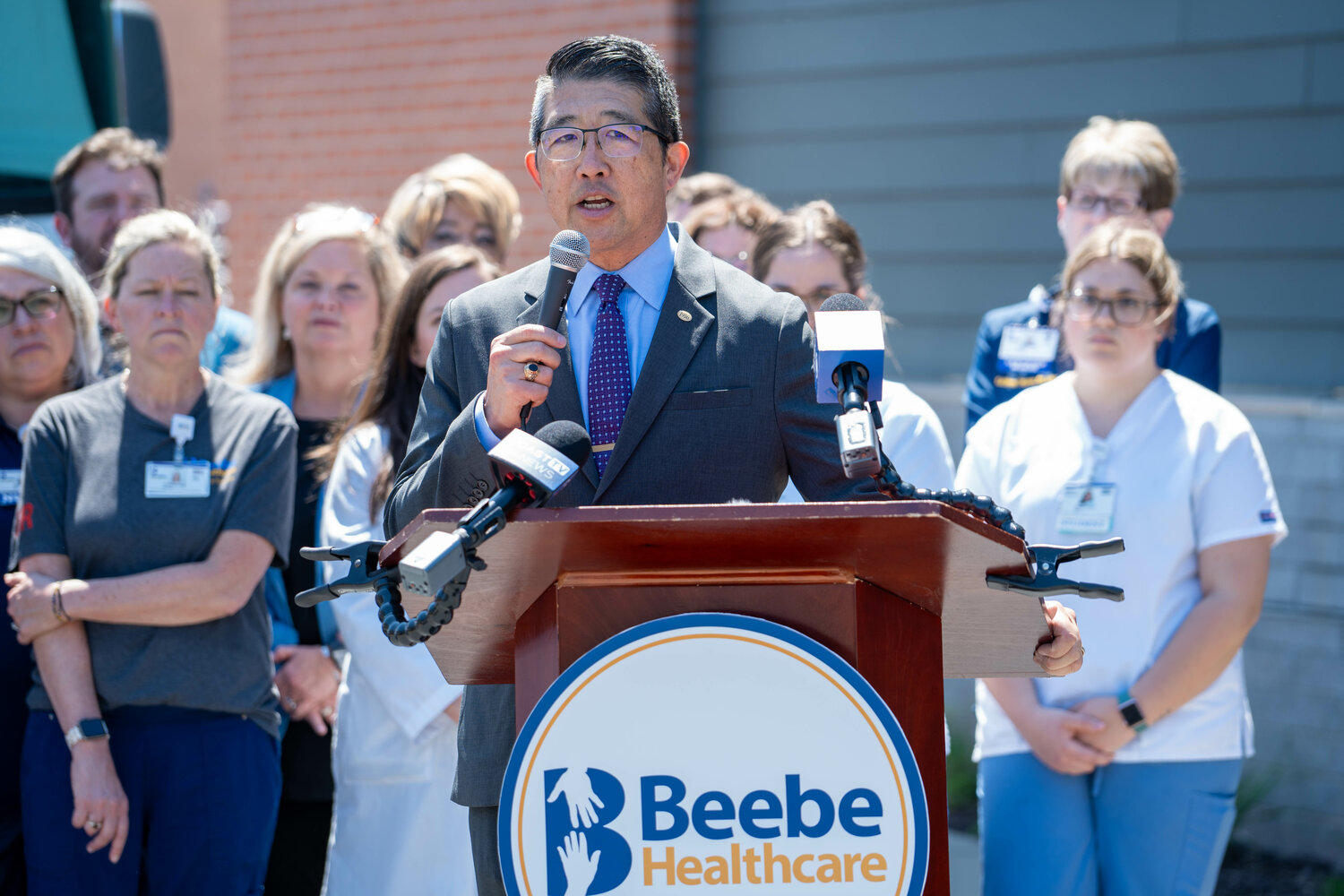Drug mixture blamed for spate of overdoses in Sussex
More than 80 hospitalizations this week, five fatalities being confirmed
LEWES — In the last week, there have been 83 suspected overdoses from a yet-to-be-confirmed drug mixture in Sussex County, with concentrations of cases in the …

You must be a member to read this story.
Join our family of readers for as little as $5 per month and support local, unbiased journalism.
Already a member? Log in to continue. Otherwise, follow the link below to join.
Please log in to continue |
Drug mixture blamed for spate of overdoses in Sussex
More than 80 hospitalizations this week, five fatalities being confirmed
LEWES — In the last week, there have been 83 suspected overdoses from a yet-to-be-confirmed drug mixture in Sussex County, with concentrations of cases in the Georgetown, Milford and Millsboro areas, according to Delaware State Police.
There have been 42 suspected overdoses in Kent County since April 26 with five suspected deaths throughout the two counties.
Police have enlisted the Delaware National Guard’s 31st civil support team to conduct testing of the substances that have caused the injuries, and initial samples showed packets containing Xylazine, Bromazolam, Fentanyl, Quinine and Caffeine.
Xylazine is a tranquilizer used on horses, cattle and other mammals for its sedative properties and is commonly mixed with street opiates, but is not approved for human use, according to the Centers for Disease Control and Prevention.
According to the CDC, Bromazolam is a “designer” drug first synthesized in 1976, but never approved for therapeutic use. It is a benzodiazepine and used for its sedative and anti-anxiety features.
Fentanyl is a synthetic opioid implicated in more than 112,000 overdose deaths in 2023 alone, according to the CDC.
Both quinine, an ingredient in tonic water and used to treat malaria, and caffeine are commonly used to dilute or cut more concentrated drugs.
“One of the troubling aspects of this set of ingestions is the severity of the patients and the significant amount of agents that are needed to try to reverse it,” Dr. Paul Sierzenski, chief physician executive for Beebe Healthcare, said.
Dr. Sierzenski said more than 11 patients had to be placed on ventilators since the outbreak began.
“This is an incredibly fast-moving situation and public health concern,” Dr. Sierzenski said.
There have been no patterns with regard to age, sex or race of the afflicted, Joanna Champney, division of mental health and substance abuse director at Beebe said.
Dr. Robert Rosenbaum, the state medical director for EMS preparedness, said it is understandable to have questions about risk in approaching someone who may be overdosing, but so far, no cases of adverse symptoms in a rescuer have been reported.
The Delaware Office of Emergency Medical Services (OEMS) offers the following recommendations to help prevent emergency responders’ exposure to illicit drugs, including synthetic opiates:
- Gloves are all that is necessary in suspected overdose and no visible product.
- Wear a face mask with eye shield if powdered illicit drugs are visible.
- Do not touch your eyes, nose, or mouth after touching any surface that may be contaminated, even if wearing gloves.
- Wash hands with soap and water after working in an area that may be contaminated, even if gloves were worn.
- Do not use hand sanitizer or bleach.
Police advise these specific overdoses may be resistant to Narcan, but multiple doses have been effective to restore normal breathing.
The Delaware Division of Substance Abuse and Mental Health reported it ensured hospitals and community providers have access to Narcan kits. DSAMH has provided 1,300 Narcan kits to Beebe Healthcare to distribute throughout their health care system and an additional 200 kits have been distributed to Beebe Healthcare for use in their Emergency Department, it said in a release.
To assist those in need, DHSS offers several avenues for support:
- 911: In cases of overdose or medical emergencies, dial or text 911.
- Delaware 211: Dial 2-1-1 or visit delaware211.org for free, confidential assistance in multiple languages.
- Delaware Hope Line: Call 1-833-9-HOPEDE (1-833-946-7333) for 24/7 access to resources, support, and crisis assistance.
- Bridge Clinics: Explore treatment services and resources in Delaware and neighboring states. In-person assessments are available at locations in New Castle, Kent, and Sussex counties.
- Treatment Connection: Find nearby treatment providers at TreatmentConnection.com.
- 988: For immediate crisis support, dial 988.
- Narcan Training and OpiRescueDE App: Information on Narcan training and accessing medication is available online.
“This is the continuation of a health crisis that we have seen over many years despite the efforts of health care organizations and certainly our state partners,” Dr. David Tam, president and CEO of Beebe Healthcare said.
Staff writer Brian Gilliland can be reached at 410-603-3737 or bg@iniusa.org.


 By
By 



